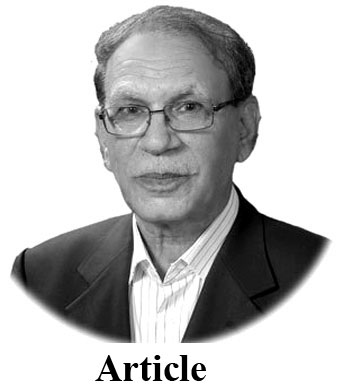Mohammad Jamil
ON Thursday, a 12-member delegation of the Taliban Political Commission (TPC) led by Mullah Abdul Ghani Baradar held an important meeting with Pakistani Prime Minister Imran Khan as part of negotiations to end persisting deadlock with the US. Earlier in the day, Taliban delegation met Foreign Minister Shah Mehmood Qureshi who led the talks from Pakistani side of the government and affirmed that Pakistan would continue its efforts to facilitate the Afghan reconciliation process. TPC delegation appreciated Pakistan’s role for peace in Afghanistan. Anyhow, Pakistan’s efforts for resumption of talks between the US and Taliban have been fruitful, as the TPC delegation team will also meet US Special Representative for Afghanistan Reconciliation Zalmay Khalilzad, who has been already in Islamabad. President Trump had halted the talks with the Taliban, following the death of a US soldier and 11 others in a Taliban bomb attack in Kabul early last month.
However, there is concern that the incumbent President Dr Ashraf Ghani and CEO Abdullah Abdullah – two main contenders in Afghanistan’s presidential election – claim they are leading even before the counting had barely started. The voting on 28th September was said to be relatively clean and transparent as compared with previous elections that were marred by allegations of widespread fraud. According to presidential election watchers, some irregularities were reported across the country during the voting, and about 2,500 complaints were registered. Of course, chances of large-scale fraud were mitigated because of strict biometric verification of voters. It will take two weeks to count all the ballots; but the competing assertions have given rise to new worries, as a candidate could declare the vote illegitimate when the final results are announced. Abdullah Abdullah claimed to have bagged the required votes and the election will not go to a runoff.
Hours later, Ashraf Ghani’s running-mate Amrullah Saleh held a news conference urging other candidates not to jump to conclusions. Then, he declared his team as the winner. “The institution that has the right to declare winners and losers is the independent election commission. The figures show that it will be a landslide victory for us. There will be no runoff. I have an intelligence background and I triple-check everything before discussing.” It has to be mentioned that in case the candidate does not get 50 per cent of the votes, there will be runoff election. After 2014 presidential election, there were allegations of fraud, and Abdullah Abdullah had rejected the results declared by the Election Commission that Dr Ashraf Ghani was successful. The US had asked Dr Ashraf Ghani to make Abdullah Abdullah as CEO, but he resisted and did not like to share power with anybody.
Abdullah Abdullah had also rejected the results in the runoff election, and had demanded audit and vote count. During the process of vote-recount and UN-supervised audit, he had even alleged fraud in the audit. Abdullah Abdullah had organized a rally in Kabul rejecting the result by the Election Commission, and there were fears that he might announce a parallel government. Reportedly, Dr. Ashraf Ghani was warned by President Obama that if he did not agree to the compromise formula making Abdullah Abdullah CEO, there could be a re-election. After the warning by the US, he declared that he would accept the compromise formula; and Abdullah Abdullah also accepted Ashraf Ghani as President. It was due to the efforts of US Secretary of State John Kerry that both Ashraf Ghani and Abdullah Abdullah accepted US-backed compromise after difficult negotiations.
But to bring the Afghan government and other groups and the Taliban together, the winning candidate would have to show magnanimity and agree with the framework on power sharing formula in order to avert civil war. With the competing claims by Dr. Ashraf Ghani and Abdullah camps, the US will have to broker another deal; and this is an ideal situation when the US can push them to accommodate the Taliban by amending the Constitution. If they don’t do it, the end result could be more bloodshed, and more regional players jumping in the fray to secure their positions. It is, therefore, in the interest of all ethnic groups to find a common ground for power-sharing to make Afghanistan peaceful, stable and sovereign. In fact, Abdullah Abdullah has all along been accusing President Ashraf Ghani of not implementing the power-sharing arrangement, and amending the constitution to create the position of prime minister.
It appears that the US, Afghan government and the Taliban want to give peace a chance, as for about four decades, Afghanistan is in the maelstrom of tribal, ethnic and factional violence resulting in large scale death and destruction. After 9/11events, as per United Nations Security Council resolution the US and NATO forces had invaded Afghanistan. Despite their 100000 troops and more than 150000 Afghan army personnel, they could not win the war. The problem was that ‘basics’ of the US policy were wrong, as right from the beginning efforts were made to ensure that minority Northern Alliance ruled the majority – Pashtuns, who were neglected at the time of raising the Afghan army and building other state institutions because of trust deficit. Anyhow, this time around US wants to see peace in Afghanistan; and the Talban leaders also believe that it is an opportunity to bring peace in war-torn country.
—The writer is a senior journalist based in Lahore.










